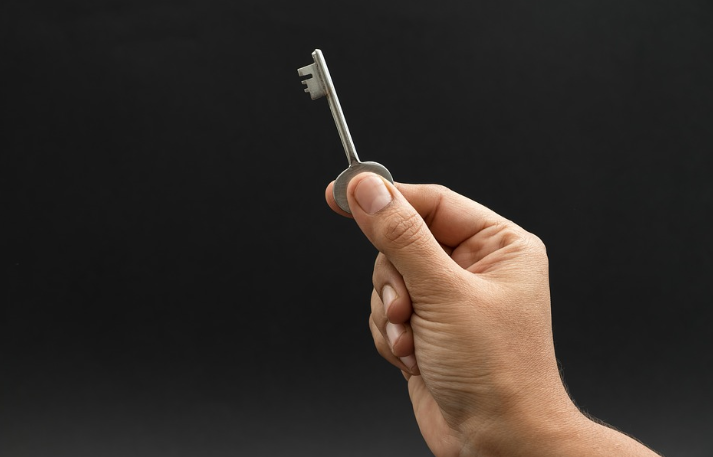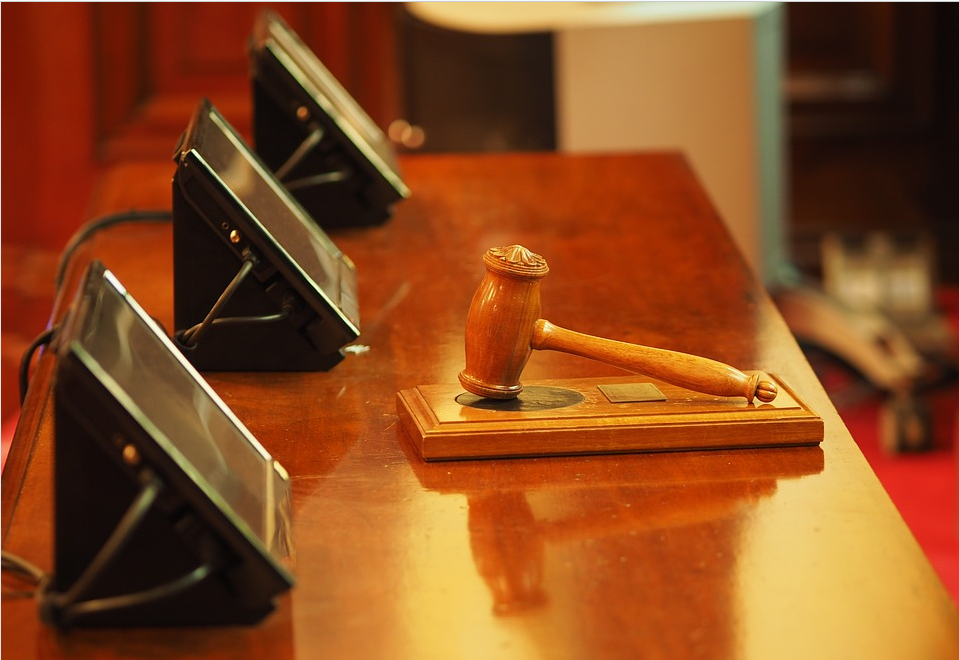When it comes to navigating family law matters, the decision between mediation and litigation can be a pivotal one. Both paths offer distinct advantages and considerations that can hugely impact the final outcome of your case. You see, it’s not just about the end result; it’s also about the journey. Family matter processes can be long, stressful, and emotionally taxing. This is why it’s essential to carefully consider your best options before deciding on the right approach for your case. In fact, if you choose to work with a family law attorney, the attorney will usually offer these two options to you. But which one is the best for your case? Let’s get into it.
Control Over Outcome
 In family law cases, the level of control over the outcome can vary significantly between mediation and litigation. Mediation basically gives chances for both parties to actively participate in crafting a mutually agreeable solution, giving them more control and ownership over the final decision. On the other hand, in litigation, a judge ultimately has the authority to make decisions on behalf of the parties involved.
In family law cases, the level of control over the outcome can vary significantly between mediation and litigation. Mediation basically gives chances for both parties to actively participate in crafting a mutually agreeable solution, giving them more control and ownership over the final decision. On the other hand, in litigation, a judge ultimately has the authority to make decisions on behalf of the parties involved.
While legal representation is essential for advocating your position in court, it’s crucial to recognize that relinquishing some control over the outcome is inherent in this adversarial process.
Time and Cost
Of course, whether it’s a child custody or divorce matter, dealing with these legal issues can be tiring and time-consuming. But let me tell you. In litigation, the process can be even more lengthy, with court dates often getting postponed and delays in reaching a final resolution. This extended timeline can lead to increased stress and anxiety for all parties involved. On the other hand, mediation typically offers a more efficient way to resolve disputes in family law cases. The collaborative nature of mediation allows for quicker decision-making and reduces the overall time spent on resolving issues. By working together with a neutral mediator, families can save so much valuable time that would otherwise be spent navigating the traditional court system.
In terms of cost, litigation tends to be more expensive due to legal fees, court costs, and other associated expenses. Mediation is generally more cost-effective as it requires fewer formal proceedings and legal representation. Families looking to minimize their financial burden may find mediation to be a more budget-friendly option when compared to traditional litigation processes.
Privacy
When it comes to family law cases, privacy is a crucial factor to consider. In litigation, court proceedings are usually public records. It means anyone can easily access information about your case. This lack of confidentiality can often be concerning for many individuals going through sensitive family matters. On the other hand, mediation offers a more private setting for resolving disputes. Since mediation sessions are confidential and conducted in a closed environment, your personal information and discussions remain protected from public scrutiny. This level of privacy allows parties to openly talk about their very own concerns without fear of judgment or exposure. If maintaining privacy is important to you during this challenging time, mediation may offer a more secure space for addressing your family law issues away from prying eyes and ears.
Relationship Dynamics
 The dynamics of relationships in family law matters are often at the forefront. Mediation and litigation can impact these relationships in different ways. In mediation, the main focus is on collaboration and finding mutual solutions that both parties can agree on. This process can lead to improved communication between family members and a more amicable resolution.…
The dynamics of relationships in family law matters are often at the forefront. Mediation and litigation can impact these relationships in different ways. In mediation, the main focus is on collaboration and finding mutual solutions that both parties can agree on. This process can lead to improved communication between family members and a more amicable resolution.…



 When starting a business, one of the first and most crucial decisions is choosing the right business structure. This decision will significantly affect your taxes, liability, and overall operations. It’s not a choice to be taken lightly, so having a lawyer can provide invaluable guidance. A skilled attorney can assess your specific circumstances, goals, and vision for the business to determine whether a sole proprietorship, partnership, limited liability company (LLC), or corporation is most suitable.
When starting a business, one of the first and most crucial decisions is choosing the right business structure. This decision will significantly affect your taxes, liability, and overall operations. It’s not a choice to be taken lightly, so having a lawyer can provide invaluable guidance. A skilled attorney can assess your specific circumstances, goals, and vision for the business to determine whether a sole proprietorship, partnership, limited liability company (LLC), or corporation is most suitable.
 Resolving disputes with partners or employees is an inevitable part of running a business. Conflicts can arise due to various reasons, such as disagreements over decision-making, breach of contract, or interpersonal conflicts. When these disputes occur, it is crucial to have a lawyer who can help navigate the complexities and find a fair resolution. A skilled lawyer will first assess the situation and analyze the legal aspects of the dispute.
Resolving disputes with partners or employees is an inevitable part of running a business. Conflicts can arise due to various reasons, such as disagreements over decision-making, breach of contract, or interpersonal conflicts. When these disputes occur, it is crucial to have a lawyer who can help navigate the complexities and find a fair resolution. A skilled lawyer will first assess the situation and analyze the legal aspects of the dispute. 

 In some cases, illegally evicting a tenant can result in criminal charges against you. The most serious charge is forcible entry, a felony in most states. This charge can carry a prison sentence of up to one year and a fine of up to $5000.
In some cases, illegally evicting a tenant can result in criminal charges against you. The most serious charge is forcible entry, a felony in most states. This charge can carry a prison sentence of up to one year and a fine of up to $5000.
 If the police did not have a valid reason to stop your vehicle, the case might be dismissed. The Fourth Amendment of the United States Constitution protects against illegal search and seizure. If the police violated your rights, the court might dismiss the case. For example, the case could be dismissed if the police pulled you over without a probable cause. This is a reasonable belief that a crime has been committed. If the police did not have probable cause to stop your vehicle, any evidence they obtained as a result of the stop may be suppressed.
If the police did not have a valid reason to stop your vehicle, the case might be dismissed. The Fourth Amendment of the United States Constitution protects against illegal search and seizure. If the police violated your rights, the court might dismiss the case. For example, the case could be dismissed if the police pulled you over without a probable cause. This is a reasonable belief that a crime has been committed. If the police did not have probable cause to stop your vehicle, any evidence they obtained as a result of the stop may be suppressed.
 Material losses: Car losses can be parts of the car or total loss. After evaluating the vehicle, it can be determined if it will only be necessary to change some parts, paint details, or it will be necessary to replace the car.
Material losses: Car losses can be parts of the car or total loss. After evaluating the vehicle, it can be determined if it will only be necessary to change some parts, paint details, or it will be necessary to replace the car. important to call the emergency services in case of injuries, your insurance agent, and in many cases, an attorney could benefit you.
important to call the emergency services in case of injuries, your insurance agent, and in many cases, an attorney could benefit you. are involved in a car accident, you could lose income for one or more business days. If your injuries have caused you to miss work or prevent you from working, an attorney will help you get reimbursed for the days lost.
are involved in a car accident, you could lose income for one or more business days. If your injuries have caused you to miss work or prevent you from working, an attorney will help you get reimbursed for the days lost.


 These cases are usually complicated to handle. Implants, brain and birth injury cases particularly can be complicated. You can continue reading to learn more on getting compensation on such claims. Your attorney has to be familiar with the laws that apply to your situation and also understand the underlying medical information. Ask the lawyer if he has been to trial and won. Inquire about the number of cases they have handled and their most recent settlement.
These cases are usually complicated to handle. Implants, brain and birth injury cases particularly can be complicated. You can continue reading to learn more on getting compensation on such claims. Your attorney has to be familiar with the laws that apply to your situation and also understand the underlying medical information. Ask the lawyer if he has been to trial and won. Inquire about the number of cases they have handled and their most recent settlement.

 It is true; law students read a lot of books. You will be required to learn more than you read in high school. Law students have to be equipped with a lot of information because information is power. You need to remember that lawyers always refer to the written law and this means that you will not be left with an option.
It is true; law students read a lot of books. You will be required to learn more than you read in high school. Law students have to be equipped with a lot of information because information is power. You need to remember that lawyers always refer to the written law and this means that you will not be left with an option. Reading the recommended law books in your coursework is not enough. Once in a while, you still need to know what is happening in the world. The legal world changes every day, and you need to make sure that you keep up with the changes.
Reading the recommended law books in your coursework is not enough. Once in a while, you still need to know what is happening in the world. The legal world changes every day, and you need to make sure that you keep up with the changes.
 Divorce attorneys usually have a lot of experience when it comes to the process of handling a divorce. They have guided and assisted a number of people through the course of their separation. That makes them experienced in handling divorces. Through their experience, they have gone through different types of hurdles and obstacles. They have also learned different types of ways and procedures on how to handle things and get the best out of the divorce for their client’s best interest.
Divorce attorneys usually have a lot of experience when it comes to the process of handling a divorce. They have guided and assisted a number of people through the course of their separation. That makes them experienced in handling divorces. Through their experience, they have gone through different types of hurdles and obstacles. They have also learned different types of ways and procedures on how to handle things and get the best out of the divorce for their client’s best interest. Another reason why you need to hire an attorney to help you handle your divorce is they will assist you in avoiding any mistakes or delays in the process of your separation with your spouse. The legal system is a complicated system. By hiring an attorney, they will help you in maneuvering through it and reducing any costly mistakes with their expertise and experience. Plus, by hiring a lawyer, you can avoid doing tons of paperwork or any other problems with the potential to cause any delays and make the divorce process completed as soon as possible.
Another reason why you need to hire an attorney to help you handle your divorce is they will assist you in avoiding any mistakes or delays in the process of your separation with your spouse. The legal system is a complicated system. By hiring an attorney, they will help you in maneuvering through it and reducing any costly mistakes with their expertise and experience. Plus, by hiring a lawyer, you can avoid doing tons of paperwork or any other problems with the potential to cause any delays and make the divorce process completed as soon as possible.
 It is always recommended that you get references whenever you are selecting the best immigration lawyers. You can ask the family members, neighbors, and colleagues who have gone through the immigration process in the past on the best immigration attorneys. They will connect you with the best attorney or give you the best referrals. Once you have at least three names from your references, you can move ahead and refine your choices.
It is always recommended that you get references whenever you are selecting the best immigration lawyers. You can ask the family members, neighbors, and colleagues who have gone through the immigration process in the past on the best immigration attorneys. They will connect you with the best attorney or give you the best referrals. Once you have at least three names from your references, you can move ahead and refine your choices. Do not just hire a lawyer because he has a beautiful office and that he has successfully represented several clients. Check the credentials of the lawyer to ascertain that he has the legal and educational requirements to practice immigration law in your area. Watch the video below on what to know before hiring an immigration lawyer;
Do not just hire a lawyer because he has a beautiful office and that he has successfully represented several clients. Check the credentials of the lawyer to ascertain that he has the legal and educational requirements to practice immigration law in your area. Watch the video below on what to know before hiring an immigration lawyer;
 Do not waste time; once you have been arrested, it is always essential that you contact your criminal lawyer immediately. Getting a criminal lawyer quickly will help you in improving the outlook of your face. For example, if you have been arrested on drugs charges, he will advise you to get medication or abstain asap since the hearing might begin after several days.
Do not waste time; once you have been arrested, it is always essential that you contact your criminal lawyer immediately. Getting a criminal lawyer quickly will help you in improving the outlook of your face. For example, if you have been arrested on drugs charges, he will advise you to get medication or abstain asap since the hearing might begin after several days. Since there are different practice area in the legal field, you must look for the practice area of a criminal lawyer when hiring. Do not hire a lawyer with no experience when it comes to criminal law because the chances of messing you up will be high.
Since there are different practice area in the legal field, you must look for the practice area of a criminal lawyer when hiring. Do not hire a lawyer with no experience when it comes to criminal law because the chances of messing you up will be high.